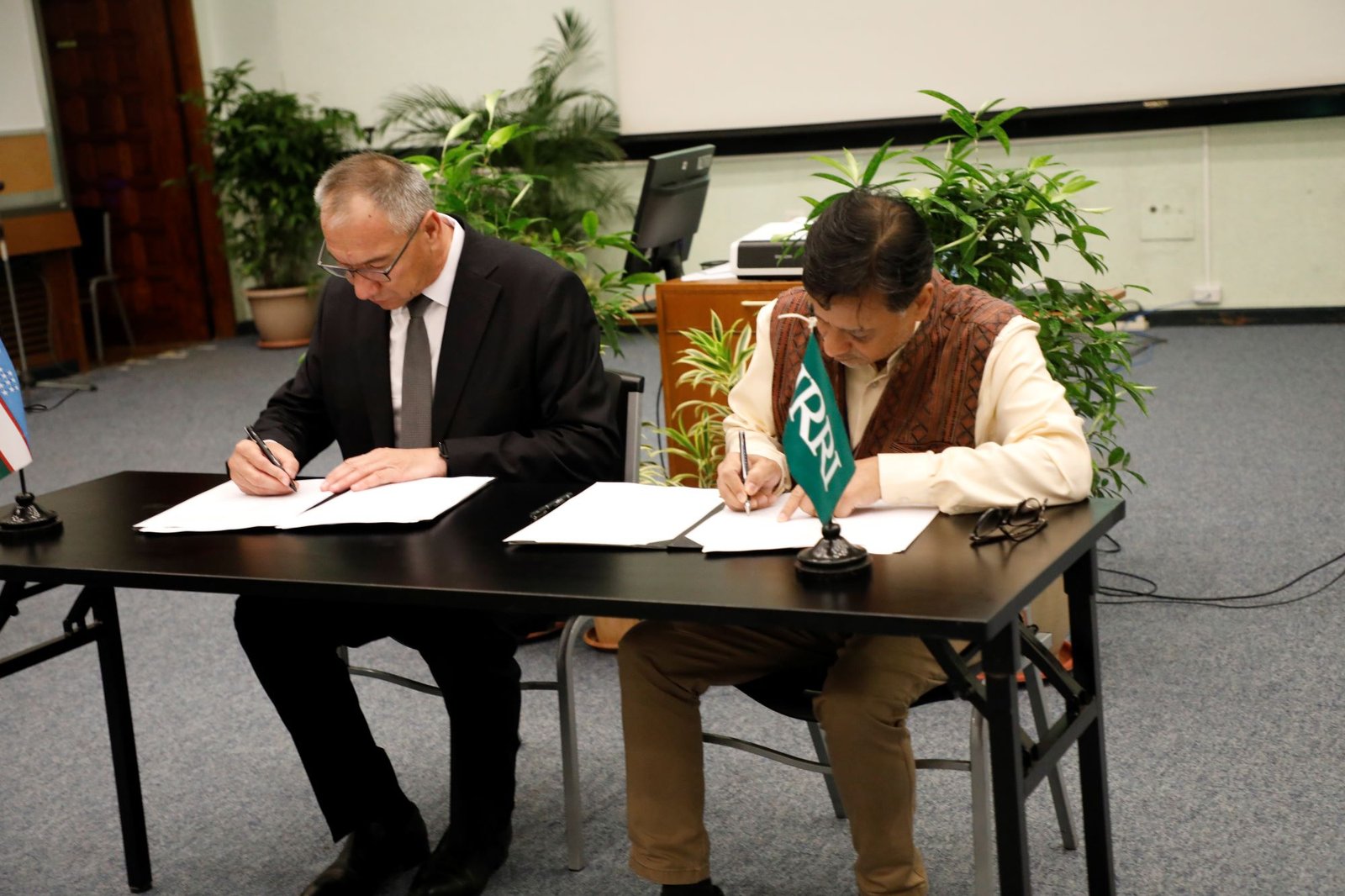Thursday, 5 March 2026

Partnership aims to encourage stronger relationships, knowledge sharing, and capacity building in rice research and development.
A delegation from the Ministry of Agriculture of the Republic of Uzbekistan visited the IRRI Headquarters to sign a Memorandum of Understanding (MOU) fostering collaboration between the two parties. The MOU, titled “Scientific and Technical Collaboration for Promoting and Disseminating High-Yielding, Climate-Smart, and Healthier Rice Varieties” aims to encourage stronger relationships, knowledge sharing, and capacity building in rice research and development. The goal is to advance food and nutrition security while enhancing climate change mitigation and adaptation.
Dr Abdullo Mansurov, Head of the Department of Cereals and Legumes of the Uzbekistan Ministry of Agriculture, led the visiting delegation and represented the ministry in the signing. Dr Ajay Kohli, Interim Director-General of IRRI, represented the institute.
This signing follows the recent induction of the Republic of Uzbekistan, through its Rice Research Institute – National Center for Knowledge and Innovation in Agriculture (RRI-NCKIA), into the Council for Partnership on Rice Research in Asia (CORRA). CORRA, an IRRI-convened partnership of National Agricultural Research and Extension Services (NARES) agencies across Asia, facilitates information sharing and initiatives to address common issues and challenges in the rice sector.
Rice in Uzbekistan is grown in approximately 149,000 hectares, with an average yield of 4.8 tons per hectare. Most farmers use direct seeding through broadcast methods based on seasons and timelines. The achievements of the country’s Rice Research Institute include the development of over 17 new rice varieties and patented technologies for addressing weeds, diseases, and pests in rice crops. Priorities for the ministry include germplasm exchange, varietal development and testing, and high-yielding varieties for cost-effective production.
IRRI leaders and scientists presented various technologies and initiatives of interest to the ministry, including hybrid rice and direct seeding technologies, online education and capacity building, and nutrient management and postharvest mechanization. The ministry welcomed the proposal for membership in groups such as the Temperate Rice Research Consortium and Seeds Without Borders.
Dr Kohli expressed appreciation for the established collaborative partnership with Uzbekistan, emphasizing the exchange of germplasms and the development of a partnership in Central Asia. Future plans include collaborations with IRRI Education, focusing on scientist exchange and participation in IRRI Education programs, fostering a two-way transfer of knowledge and expertise.
Dr Mansurov expressed gratitude for the collaborative partnership and highlighted the potential for greater engagement and collaboration with neighboring countries in Central Asia, given the similar climatic conditions. He also acknowledged the possibility of additional MOUs with other ministries.
After the meeting, the Uzbekistani delegation toured IRRI facilities, witnessing various IRRI technologies and initiatives, including the Plant Growth Facility, the DSR field, and the International Rice Genebank.